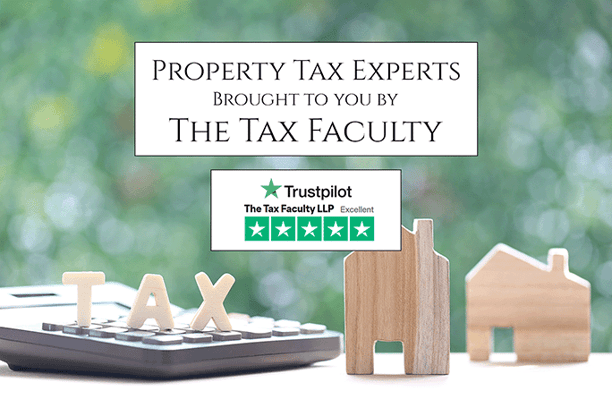Capital Gains Tax on Residential Property in the UK: What You Need to Know
Capital Gains Tax (CGT) on residential property can be complex, but understanding it is crucial when you are planning to sell a previous home, a second home or rental property.
Our handy guide will walk you through everything you need to know about CGT on residential property sales, including current rates of tax, exemptions, and strategies to reduce your liability.
What is Capital Gains Tax on Residential Property?


Capital Gains Tax is a tax that may be payable on the profit when you sell, transfer or dispose of a residential property that has increased in value.
Unlike income tax, CGT is only payable on the profit you make from the saleand not from the total amount you receive.
The key properties that fall under CGT include second homes and rental properties — your main residence is typically exempt due to Principal Private Residence ("PPR") relief, unless there are periods when you did not live there.
Capital Gains Tax Rates for Residential Property in the UK (2024)


The Capital Gains Tax rates vary based on your income tax band and the type of asset you are selling. Below, we break down the CGT rates for different individuals and asset classes in the UK for 2024. For the tax year ended 5th April 2025 capital gains tax rates are as follows:
The rate of Capital Gains Tax for residential property in the UK is currently 18% at the basic rate and at 24% at the higher rate.
In addition to the rates noted above, the amount of CGT that is paid at the basic rate and / or higher rate will also be dependent on a number of other factors. It is a common oversight to think that a basic rate taxpayer will pay CGT at the basic rate on all capital gains.
However, there are also a number of exemptions, reliefs and allowances that can reduce the amount of CGT that is payable when you sell or give away a residential property.
For example, if you have lived in the property as your main home for a time, you will more than likely be entitled to Principle Private Residence ("PPR") relief when you sell the property.
If you only lived there for part of the time that you owned it, you’ll still be entitled to a proportion of PPR relief which may reduce the Capital Gains Tax that may be due. There may also be ways to extend the amount of relief that you can claim. This is a complex area of taxation and we recommend that you seek professional advice on such matters.
In most cases, you will also be eligible for a tax-free allowance of £3,000 per person per year. This is called the Annual Exempt Amount ("AEA"), which means that if the total of your gains fall below £3,000 in the tax year, you may not need to pay any CGT at all.
If you made a loss when selling an asset, this can be reported to HMRC and if the loss is allowable, you will be able to set this loss against other capital gains in the tax year or in the following tax years.
A loss is not usually allowable if any of the following applies:
You’ve sold or gifted the asset to a spouse or civil partner
You’ve sold or gifted the asset to a family member
You’ve sold or gifted the asset to a connected person (this can be complex – contact us for more information)
How to Calculate Capital Gains Tax on Residential Property Sales


To calculate your CGT liability, you first need to determine the profit you’ve made from the residential property sale. This will depend on a number of factors, including:
The amount you bought the property for (or in some circumstances the market value of the asset when you acquired it),
The amount you sold the property for (or in some circumstances the market value of the asset when you sold it or gave it away),
Any costs associated with buying or selling the property, such as estate agent fees or legal fees, and any improvements you have made to the asset during the period of ownership.
There are a number of other expenses which may be included in the capital gains tax computations depending on your individual circumstances.
The CGT legislation governing residential property sales is complex, we would always recommend discussing your situation with a qualified advisor so that you can be sure of the accuracy of your computations and ensure you are paying as little CGT as possible while still complying with tax legislation.
Reporting Capital Gains Tax on Residential Property


Once you have calculated your CGT liability, it must be reported correctly to HMRC.
You need to report and pay your CGT within 60 days of completing the sale of residential property.
Failing to meet this deadline can result in penalties and interest charges, so it’s important to stay compliant.
Reporting can be done through the HMRC CGT Return Online Service or by a paper CGT Return if you are unable to register for the online service.
If you usually file a Self-Assessment Tax Return, you will also need to include details of the sale of the residential property in your tax return for the year during which the property was sold.
If you’re unsure how to proceed, seeking the help of a tax advisor can ensure that everything is reported accurately and on time.
We have filed thousands of CGT Returns for our clients - feel free to drop us an email to discuss your circumstances and how we can help you to report your CGT Return on time - info@thepropertytaxexperts.co.uk or call us on 0800 0016 878 for a free consultation.
Frequently Asked Questions About Capital Gains Tax on Residential Property


Q: Is Capital Gains Tax applicable to my main home?
A: Your primary residence is typically exempt from CGT under Private Residence Relief. However, if you’ve rented out part of the property, used a portion for business activities, or had periods where the home wasn’t your main residence, a portion of the gain may still be taxable.
Q: What is the Capital Gains Tax allowance for 2025?
A: In 2025, individuals have a CGT allowance of £3,000, while trusts receive £1,500. Couples can combine their allowances for a total of £6,000.
Q: Can I reduce Capital Gains Tax by reinvesting in another property?
A: The UK does not offer rollover relief for reinvesting in residential properties, unlike some other jurisdictions. However, with strategic planning and the application of available reliefs, it is possible to minimise your CGT liability.
Q: What costs can I deduct when calculating Capital Gains Tax on a residential property sale?
A: You can claim deductions for specific allowable costs, such as legal fees, estate agent commissions, stamp duty, and the cost of property improvements (but not routine maintenance). These deductions help lower your taxable gain.
Q: How long must I live in a property for it to be considered my main residence and exempt from CGT?
A: There is no set time period, but HMRC evaluates factors like the length of occupancy, whether the property was genuinely your main home, and evidence of it being your primary residence. This area of tax law can be complex, so consulting an expert is advised if you are uncertain.
Q: Do I have to pay Capital Gains Tax if I gift a property to a family member?
A: Yes, gifting a property counts as a CGT disposal, and tax is calculated based on the property's market value at the time of the gift. Exceptions apply if the recipient is your spouse or civil partner.
Q: Is relief available if I sell an inherited property?
A: Yes, you may still use the Annual Exemption Allowance and deduct allowable expenses. The gain is calculated based on the property's market value at the time of inheritance rather than its original purchase price.
Your Trusted Partner For Property Tax Solutions
We specialise in helping individuals and businesses effectively manage their property tax obligations. Our promise to all clients - you will pay the least amount of tax possible, while complying with your legal requirements.
Led by Charles Tateson, Managing Director of The Tax Faculty and award-winning tax advisor with extensive HMRC experience, our team is dedicated to providing personalised and effective tax solutions for both UK residents and international clients who own UK-based property.













